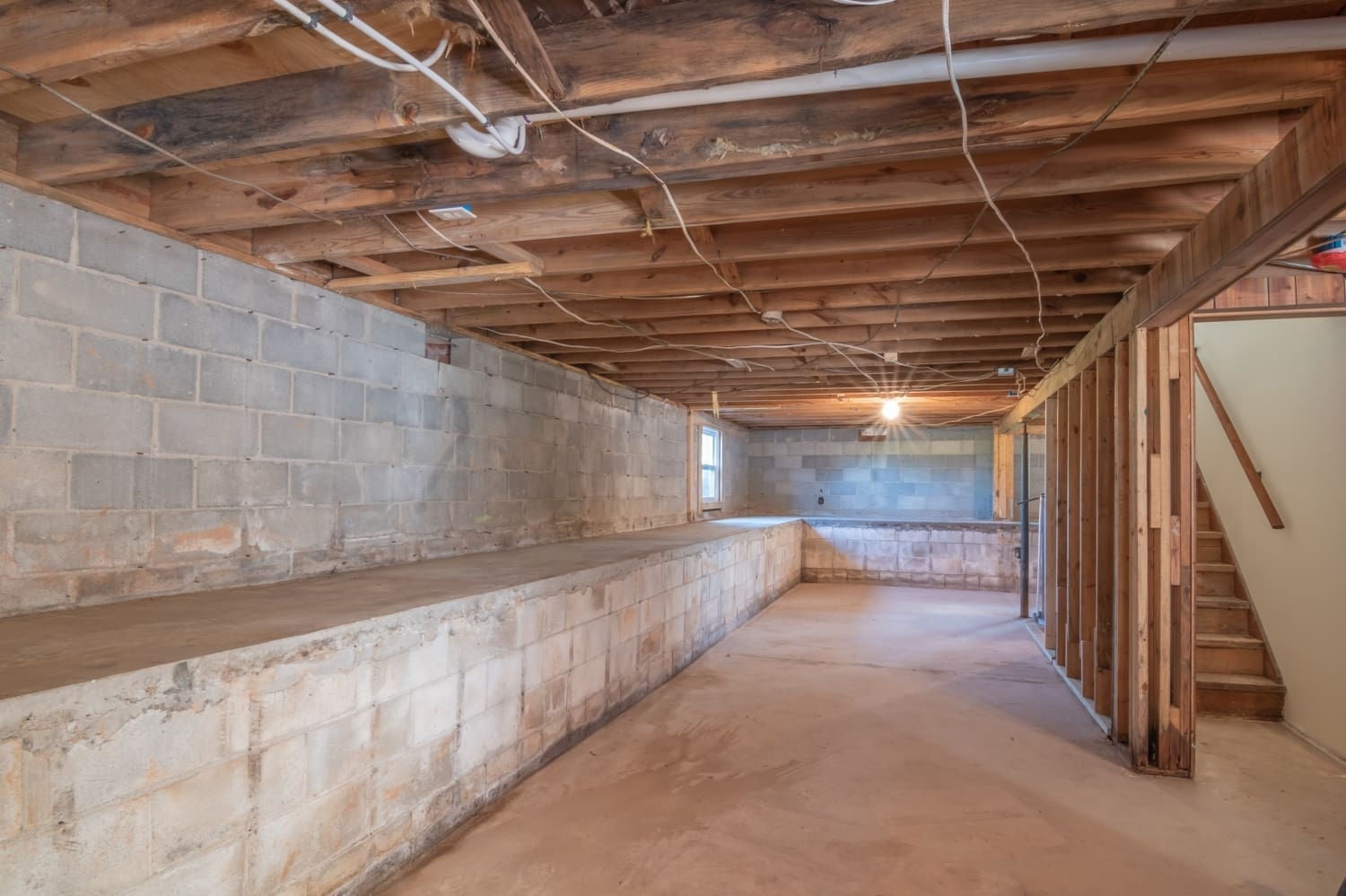Your Basement & Your Health

A basement can be extremely handy, giving you extra storage space and an additional area to entertain friends and family. However, basements can also be a potential health hazard in some situations. Unfinished basements, in particular, could cause health problems if they are not cared for properly. It’s important to keep an eye out for problems such as mold that could have a negative impact on your health.
The professionals at Michigan Basements know all about how to keep your basement healthy, in turn leaving you and your family’s health intact. Learn about how your basement can affect your health and what you can do to ensure your basement is in proper working condition.
Your Basement and Health: What’s the Connection?
How can your basement be connected to your health? Like any part of your home, your basement has the potential to present certain health hazards. If your basement isn’t in good condition, it can have an impact on both your physical and mental health. Unfinished basements in particular have a tendency to be much colder than the rest of the home, increasing risk for the common cold and flu-like symptoms to continuously emerge.
In addition to illness and overall unhealthy feelings, having a basement in poor condition can take a toll on your mental wellbeing. The stress of not knowing what’s down there or how to solve the problem can affect how you live your daily life and cause your health problems to decline rapidly. Fixing your basement can put your mind at rest and keep you safe, so let’s take a look at what’s affecting your basement and your health.
Key Basement Issues Affecting Your Health
Your basement could be holding a number of horrible secrets that might affect your health, especially if you don’t venture down there often. In order to keep the peace and ensure your basement isn’t endangering the health of yourself and your loved ones, you should understand some of the dangers that could be lurking down below.
Excess Moisture
Basements often have a lot of problems with excess moisture. Due to rain and groundwater, basements are the first place that water will pool either in or around the basement walls. This effect creates condensation and dampness, which can lead to mold and mildew growth. Excess moisture in your basement can create skin problems, eye irritations, immunocompromisation, or breathing and lung issues. Those who already struggle with a compromised immune system are particularly more vulnerable to feeling the effects water damage can cause.
Asbestos & Mold
Older basements that don’t see a lot of care and protection could be hiding asbestos or mold. Asbestos is a naturally occurring mineral that can be found in paint, insulation, and floor tiles, whereas mold is a common fungus that can be found in practically every structure. Asbestos is commonly found in older homes, as it once was used in the construction of houses, businesses, and facilities. When asbestos starts to break down and releases into the air, it attaches to your lungs when inhaled. Overtime, these fibers break down and can cause asbestosis, as well as a cancer called mesothelioma.
In contrast, mold is not harmful until it has had the opportunity to attach to a surface and begin to grow (forming black mold). While most types of mold produce spores that are mildly irritating, black mold has toxic properties that can drastically affect your health. The effects of black mold are similar to heavy metal poisoning, causing heavy coughing, lack of concentration, the brain finding difficulty in producing cognitive thoughts, and more.
Gasses
Gasses such as carbon monoxide and radon are sneaky unseeable dangers that could be hiding out in your basement (and spreading through the vents into the rest of your home). Carbon monoxide is a colorless, odorless gas that is invisible and can come from fuel-burning appliances when combustion is not completed properly. Over exposure to carbon monoxide can cause headache, dizziness, chest pain, and what are commonly described as “flu-like” symptoms. In extreme conditions, To avoid carbon monoxide leaks in your home, be sure to have a working carbon monoxide alarm in your basement.
Another common gas found in basements is radon. Radon is a radioactive gas that’s naturally released from the earth. Most radon exposure occurs inside homes, schools, and workplaces—becoming trapped indoors after it enters through cracks and holes in the foundation. Breathing excess amounts of radon over time increases your risks of lung cancer. In order to identify trace amounts of radon in your basement and home is with at-home or professional testing. If you’ve experienced shortness of breath, pain or tightness in your chest, worsening cough, or trouble swallowing, it’s crucial you have your home tested immediately.
Protect Your Basement & Your Health
In order to keep your basement safe and protect your health, the experts at Michigan Basement’s provide basement waterproofing. Though this isn’t a failsafe to other dangers such as gasses and mold, basement waterproofing can help eliminate excess water that contributes to these other factors. Eliminating standing water and any moisture in the air discourages mold growth, which, in turn, will make the air in your home safer for your family to breathe.
Michigan Basement’s Does it Best
If you’ve experienced an increased health decline over the past few months and suspect your basement is to blame, Michigan Basements can help. As a fully bonded and insured company, we offer free inspections and full warranty coverage on all work performed. Additionally, we’re able to help guide you to the correct testing products to help eliminate and alert you of natural gas leaks, ensuring your safety. Ready to get your basement in proper working order? Contact us today to get started.


